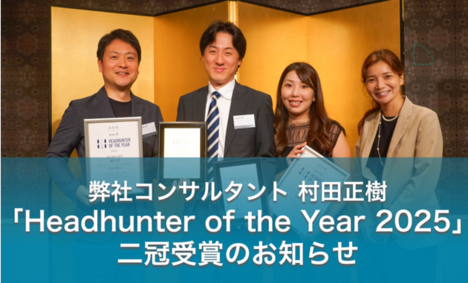
Have you ever considered having a career in consulting? Consulting is a rewarding industry where you get to work in a fast-paced environment alongside decision makers, providing solutions to address pressing corporate challenges. It’s where your knowledge and experience can contribute immensely to the growth of an organization.
The consulting industry is also a wide-ranging industry, encompassing numerous opportunities within itself, for instance, the opportunity to move from one subsection to another. As a consultant, there’s plenty of room to grow professionally, since you can always find ways to expand your role beyond your initial expertise, and widen your skill set to other relevant aspects of the industry.
At RGF Professional Recruitment Japan, we have teams that are specialized in an array of these subsections, particularly IT Consulting and Strategy Consulting. From the words of our Consulting Team’s consultant, here is what you need to know about the practice of IT Consulting and Strategy Consulting, as well as strategic ways to make a move from IT Consulting to Strategy Consulting.
Strategy Consulting
Strategy consultants are professionals who analyze a company and its market, with a mission to detect whether certain elements are coherently aligned and consistent with the company’s business goals - such as strategic guidelines, mission, vision and values, market positioning, target audience, objectives, and its value chain*.
Strategic consultancy takes into consideration the bigger picture of a client’s operation, and answer the queries of key executives or top-level management personnel when it comes to steering their business in the right direction and making the most appropriate decisions, quite similar to the role of a doctor that diagnoses the problem first-hand, and prescribes actions to remedy it. To be more specific, a strategy consultant’s job is to meet the prospective client to gain a better idea of the issue, and follow up with a realistic analysis of the potential benefits and trade-offs, as well as a proposal on how to best guarantee a positive outcome. This requires an understanding of the context, followed by a combination of specific strategic choices to overcome the problem, and often, direct assistance with the implementation of this strategy as well.
In term of qualifications, strategy consulting firms hire the vast majority of their employees from graduates of prestigious universities. This is one industry where your alma mater’s reputation really matters. Having graduated from one of the top-tier universities will have already unlocked your opportunity in stepping foot into strategy consulting.
IT Consulting
Source: Unsplash, Wonderlane
IT consultancy works to address a more niche problem, which is to answer the question of how technology – as a tool – plays in business and the day-to-day operation of a company. From Big Data analytics to cloud computing, chat bots to voice assisstance, machine learning to artificial intelligence, virtual reality to augmented reality, the growth of technologies is booming every day. Considering the fast changing technology landscape we have today, it is vital to have a stable technology rundown for an organization, to create a road map with clear milestones which helps transitioning from their current state to the targeted state of technology. In simple words, IT consulting helps the organization focus on their key business with technology acting as a business enhancer, and not a problem child.
An IT consultant works in partnership with clients, providing advice on how to best use information technology, so as their business objectives are met. According to the professionals at Prospects, IT consultants help businesses navigate through the enhancement of technology, by improving the efficiency of IT systems and providing strategic technology guidance to clients.
Oftentimes when compared to strategy consulting, IT consulting might not include as much consultative work because IT consultants can be coders, data analysts, or web designers. When ‘strategy’ is added to the job title, technology strategy consulting implies that you are assisting your client in defining their technology strategy, or improve the one they already have in place. A technology strategy consultant helps clients align their business goals with the technology in which the companies are using or planning on using.
What are the differences between Strategy Consulting and IT Consulting?
The question scale
As an IT consultant, you can ask your clients questions to address a more detailed implementation of the technology in the company, such as:
What are the security concerns of moving your data to cloud computing?
How much are they currently spending to solve their IT problems, and what is being done through those expenditures?
Does their in-house IT staff have the skills to tackle all these problems reliably? How can you tell in advance to avoid this later on?
In the same context, strategy consultants will work on answering a different set of questions.
Are the company’s products fully utilized for the market and customers’ needs?
Where are the best growth opportunities?
Should the client expand internationally by exporting from their domestic manufacturing base, or find local partners in foreign markets?
IT consulting is the service offering with answers to such questions at a level applicable to your needs, whereas strategy consulting addresses broader and often higher-level questions.
Different initiatives
IT consulting entails less business analysis and focuses more on how to do what has been decided. Strategy consulting, however, is more about deciding what to do with a particular goal or outcome in mind: what to start doing, what to stop doing, and what to keep doing.
What do Strategy Consulting and IT Consulting have in common?
Source: Pexels, Fauxels
Not so much about the nature of the work, but people that work in both strategy consulting and IT consulting have the tendency to be open-minded and thrive on challenges. The consulting industry is very fast-paced, so consultants have to be quick to react and adapt to new situations. There are other baseline qualities that those who work in consulting have, which are time management, effective communication, and structured problem solving skills.
Nonetheless, one thing both strategy consulting firms and IT consulting firms have in common is the fact that they both embrace diversity. Just as you would in real life, in consulting, you can come across a very diverse set of individuals. Consulting is an industry where the benefits of diversity is highly appreciated, because with a diverse team, more ideas are created and better quality solutions are delivered.
Is switching from IT Consulting to Strategy Consulting possible?
The transition from IT consulting to strategy consulting depends a lot on the reputation of your past consulting employer, what type of experiences you’ve acquired, and the network you were able to build during your time there.
If you work for a consulting firm that also has strategy arms, the transition will not be too difficult as long as you are able to communicate with your supervisor about wanting to move to another consulting group of the same firm. Having expressed your interest in moving from system development work to a more planning and management-oriented work to your superior, they’ll know who to consider for the move when the opportunity arises.
On the other hand, if you are working for an IT consulting firm and wanting to move to a strategy consulting firm, you will need to find ways to present your former positions more like a business consultant, and not an IT consultant. While still performing as an IT consultant, you should start taking on more strategy consulting type of work within your technology project. Depending on the nature of your IT consulting work, there may be some similarities with a strategy consulting practice. For instance, in IT consulting, you may get involved in developing strategy for the IT department of your client, be it a small or major corporation. As you gradually progress into the strategic nature of your IT consulting work, your gateway to the transition will slowly unravel.
Consider networking your way in. Contact friends or former colleagues that work at a strategy consulting firm and ask if they could possibly give you a referral and connect you to a recruiter that works with the firm. Recruiters can give you advice on what actions to take in order to switch from tech to strategy consulting, and oftentimes, get you in that interview.
Your background in IT consulting shouldn't be an obstacle preventing you from pursuing a career in strategy consulting, but should be an added value in your expertise, or as a conversation-starter when interacting with a client who’s interested in the technology similar to what you have back when you were in the IT consulting field. You should keep in mind that strategy consulting is something that can be learned on the go, by observing how multiple businesses run their operations, what common problems and struggles specific to their forms of businesses and and how they deal with them. And with that, your extensive knowledge in IT from your previous experience will just be the fine cherry on top!

Working at a global company has many advantages, not only for those who want to work globally and those who want to make use of their language skills, but also for people who strive to Unleash their Potential seek their own potential and have a healthy work-life balance.
RGF Professional Recruitment Japan supports the recruitment hiring activities of many of the top domestic and foreign capital companies in Japan. Various excellent companies including foreign and Japanese global companies located in Japan. Therefore, as a result, we can introduce the best career options for each person.to suite all types of career profile.
If you want to work in a global environment or globally, want to work in a place where you can perform more, or want toto a higher level and expand your career options in the future, please contact us. Our experienced consultants will do their best to support your career growth.








